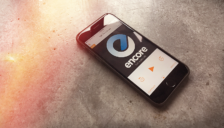Frank Chimero, writing on his blog:
This past summer, I gave a lecture at a web conference and afterward got into a fascinating conversation with a young digital design student. It was fun to compare where we were in our careers. I had fifteen years of experience designing for web clients, she had one year, and yet some how, we were in the same situation: we enjoyed the work, but were utterly confused and overwhelmed by the rapidly increasing complexity of it all. What the hell happened?
Great post.











